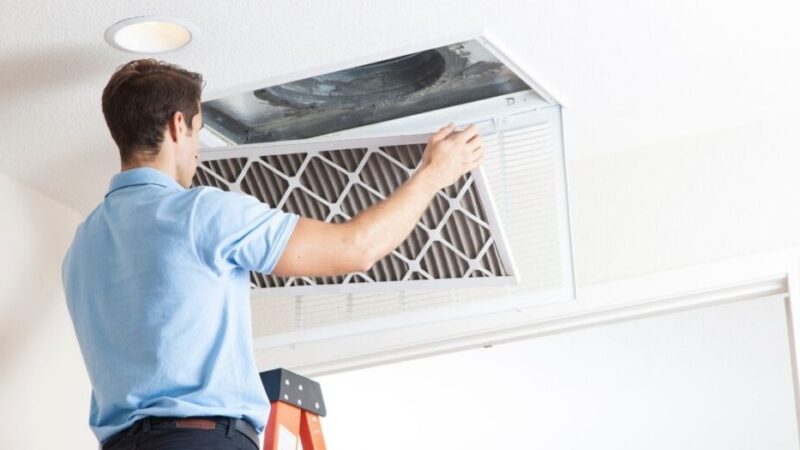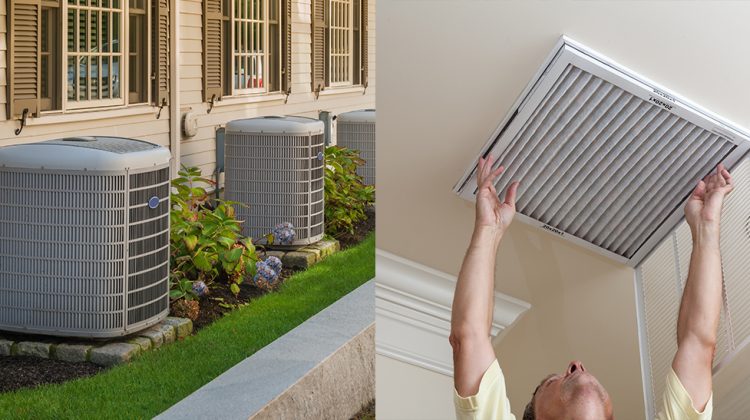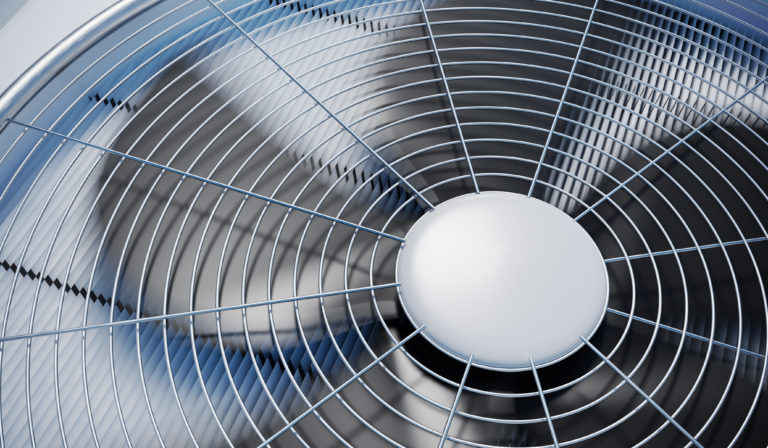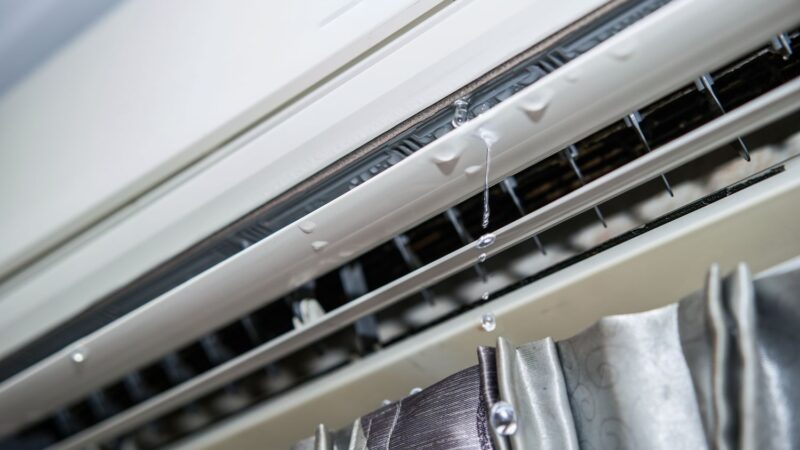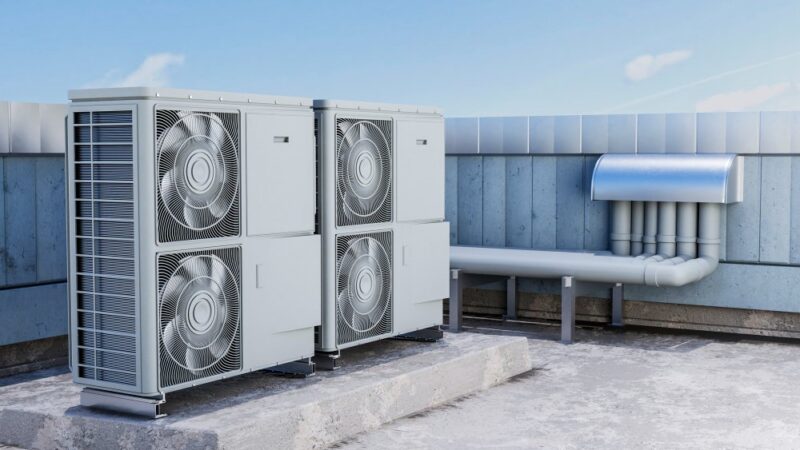Air Purifier Vs Humidifier: Which One Do You Need?
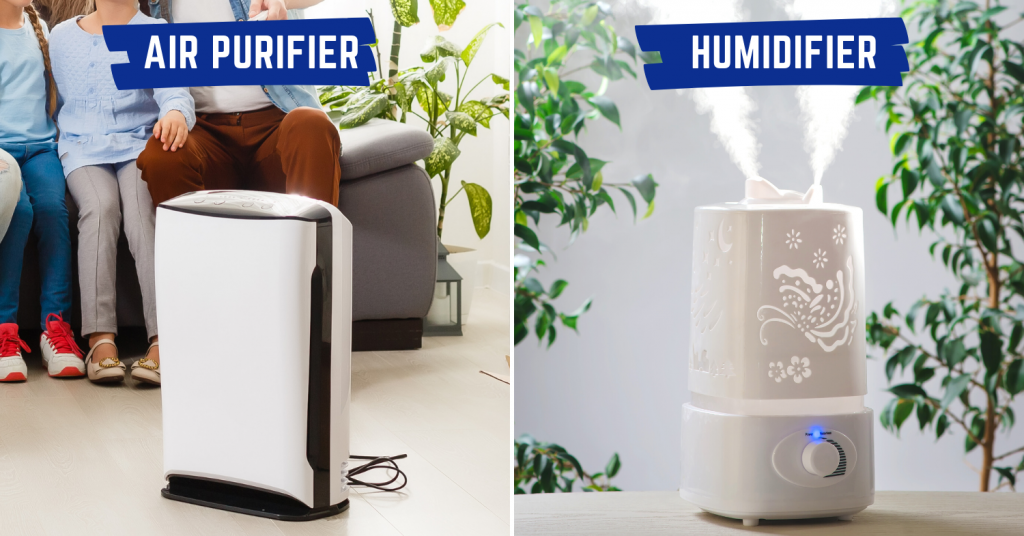
When choosing between an air purifier and a humidifier, it’s helpful to understand what each one does. Air purifiers clean the air by removing pollutants like dust and pollen.
This makes the air safer and healthier to breathe. Humidifiers add moisture to the air to help with dryness, which can cause problems like dry skin and sore throats.
In this article, we’ll explain how both devices work, what they can do for you, and when it might be better to use one over the other. By the end, you’ll have a good idea of which device is right for your home.
What is an Air Purifier?
An air purifier is a machine that cleans the air in a room. It removes things like dust, pollen, pet hair, mold spores, and smoke from the air. This makes the air healthier to breathe, especially for people with allergies, asthma, or other breathing problems.
Air purifiers use different types of filters to improve the air quality index.
- HEPA Filters: Trap tiny particles, including dust and allergens.
- Activated Carbon Filters: Absorb odors and gases from the air.
- UV Light Filters: Use ultraviolet light to kill bacteria and viruses.
- Ionic Filters: Release ions that attach to particles, making them easier to remove from the air.
What is a Humidifier?
A humidifier is a device that helps reduce dryness in the air of your home, which is particularly helpful in dry climates or during the winter when heating systems tend to dry out the air. It works by drawing water from its tank and adding moisture to the air in various ways.
Some humidifiers use a fan to blow air through a wet filter, releasing moisture into the air. Others use ultrasonic vibrations to create a fine mist.
There are also steam vaporizers that boil water to produce steam, which is slightly cooled before being released into the air.
The added moisture disperses throughout the room, making the air more comfortable to breathe and helping to ease issues like dry skin and sore throats.
Difference Between Air Purifier And Humidifier?
There are some major differences between air purifiers and humidifiers that you need to know before buying either for your workspace.
Air Purifiers:
- Purpose: Air purifiers aim to remove harmful particles from the air, such as dust, pollen and pet hair.They’re great for people with allergies or respiratory issues.
- How They Work: These devices draw in air, trap unwanted particles in filters, and release clean air back into the room. They typically don’t add moisture to the air.
- Filters: They use different types of filters, like activated carbon or HEPA, to capture various pollutants.
Humidifiers:
- Purpose: Humidifiers add moisture to the air, which helps if you’re dealing with dry skin, nasal passages, or throat.
- How They Work: They release moisture into the air either by boiling water into steam, vibrating it into fine droplets, or using a fan and wick to evaporate it.
- Maintenance: It’s important to use distilled water and clean the unit regularly to prevent bacteria and mineral buildup.
In short, choose an air purifier for cleaner air. If the air is too dry and causing discomfort, a humidifier is the best option for you.
Impact on Health and Diseases
Asthma and Allergies
Air purifiers help reduce allergens like dust mites, pet hair, pollen, and mold spores in the air. This is great for people with allergies or asthma because it lowers the chances of breathing in these triggers.
These tiny particles can float around for hours, and air purifiers are good at catching them.
Humidifiers don’t lower the number of allergens. They might make you feel better if your nose is dry and irritated, but they don’t get rid of allergens.
If not cleaned properly, humidifiers can even add mold to the air, worsening allergies and asthma.
Colds, Flu, and Breathing Problems
Air purifiers can catch particles, including some that might carry viruses. They can’t cure a cold, but they can make the air cleaner and possibly ease symptoms.
Humidifiers can help with a stuffy nose and other cold or flu symptoms. Keeping the humidity at 40-60% can also help reduce the spread of viruses. While a humidifier can’t cure you, keeping your nose and throat moist can make symptoms less uncomfortable.
Dry Air
Air purifiers don’t add moisture to the air, so they won’t help with dry air problems. Dry air can worsen breathing issues like asthma, bronchitis, and sinusitis.
Humidifiers add moisture to the air, helping with dry conditions. This is especially useful in winter when heating makes the air very dry, irritating your nose and throat.
When to Choose an Air Purifier
For Allergies and Asthma:
Air Purifiers: If you or someone in your home suffers from allergies or asthma, an air purifier is a great choice. It removes allergens like dust, pollen, pet dander, and mold spores, which can trigger symptoms.
For General Air Quality:
Air Purifiers: If your primary concern is overall air quality, including the removal of pollutants like smoke, odors, and airborne chemicals, an air purifier is an excellent choice.
When to Choose a Humidifier
For Dry Air:
Humidifiers: If you live in a dry climate or experience dry air during the winter, a humidifier can help. It adds moisture to the air, which can alleviate dry skin, sore throats, and nasal irritation.
For Cold and Flu Symptoms:
Humidifiers: When dealing with colds or flu, a humidifier can make breathing easier by keeping nasal passages moist. This can provide some relief from symptoms like stuffy noses and scratchy throats.
Air Purifier VS Humidifier: Which One is Best for Babies And Senior Citizens?
Air Purifiers and Humidifiers Together: For babies, using both an air purifier and a humidifier can create the best environment. The air purifier keeps the air clean of allergens and pollutants, while the humidifier adds necessary moisture to prevent dry air issues.
Air Purifiers and Humidifiers Together: Seniors can benefit from both devices. An air purifier helps by removing respiratory irritants, while a humidifier can add moisture to help with dry skin and breathing issues.
Specific Health Conditions
For Respiratory Issues
Air Purifiers: Great for people with respiratory problems. They clean the air by getting rid of things that can irritate your lungs.
Humidifiers: Can help if dry air is bothering you. But be careful, Too much humidity can sometimes make respiratory issues worse.
Can You Use Air Purifier And Humidifier Together?
Yes, you can definitely use an air purifier and a humidifier together. In fact, for many people, especially those with respiratory issues or living in dry climates, combining the two can provide significant benefits.
Why is it good to use both?
- Cleaner air: Air purifiers remove bad stuff like dust and pollen. Humidifiers add moisture to the air. Together, they make your home’s air healthier.
- Helps with breathing: If you have trouble breathing, using both can help.
- Stops dry skin: Humidifiers can help prevent dry skin and other problems.
How to use them together?
- Choose the right size: Make sure your air purifier and humidifier are the right size for your room.
- Keep them clean: Clean the filters in your air purifier and clean your humidifier often.
- Check the humidity: Use a tool to measure the humidity in your home. Too much humidity can be bad.
Recommendation
How Does An Air Purifier Work?
Where To Put Air Purifier In Your Home?
How To Clean Air Purifier Filter?
How To Fix Levoit Air Purifier Red Light Problem?
How To Use LG Washer Tub Clean Cycle?
Fixing a GE Dishwasher Without Power or Lights: A Step-by-Step Guide
Ninja Blender Blinking Red Light – How To Fix Instantly
How To Relight Your Water Heater’s Pilot Light
What To Do When Microwave Fan Won’t Turn Off
Conclusion
In conclusion, air purifiers and humidifiers serve different purposes. Air purifiers remove allergens and pollutants, improving air quality, while humidifiers add moisture to relieve dryness.
Your choice depends on your specific needs, but using both together can offer the best results for cleaner and more comfortable air in your home.
FAQs
Q: Which is better, a humidifier or an air purifier?
A: The best choice depends on your needs. If air pollution or allergens are your main concern, an air purifier would be ideal. On the other hand, if you’re dealing with dry air, a humidifier might be more beneficial for you.
Q: Is a humidifier or air purifier better for a cough?
A: If particles in the air are causing your cough, especially if you have asthma or allergies, an air purifier is likely to help more. However, if your cough is due to a dry throat, a humidifier would be the better option.
Q: What are the disadvantages of air purifier?
A: There aren’t many drawbacks to having an air purifier at home, except for the cost. It’s important to know that many ionizers, especially older ones, can produce ozone when they run. Ozone can be harmful because it can make asthma symptoms worse and cause other breathing issues. So, while air purifiers improve air quality, it’s best to choose models that don’t create ozone, like those with HEPA filters, which are both safe and effective.
Q: Should you sleep with a humidifier and air purifier?
A: If easier breathing at night is essential for better sleep, try combining a humidifier with an air purifier. A humidifier can keep your nasal passages and throat moist, offering temporary relief from coughing, sinus irritation, and congestion due to dry air.


